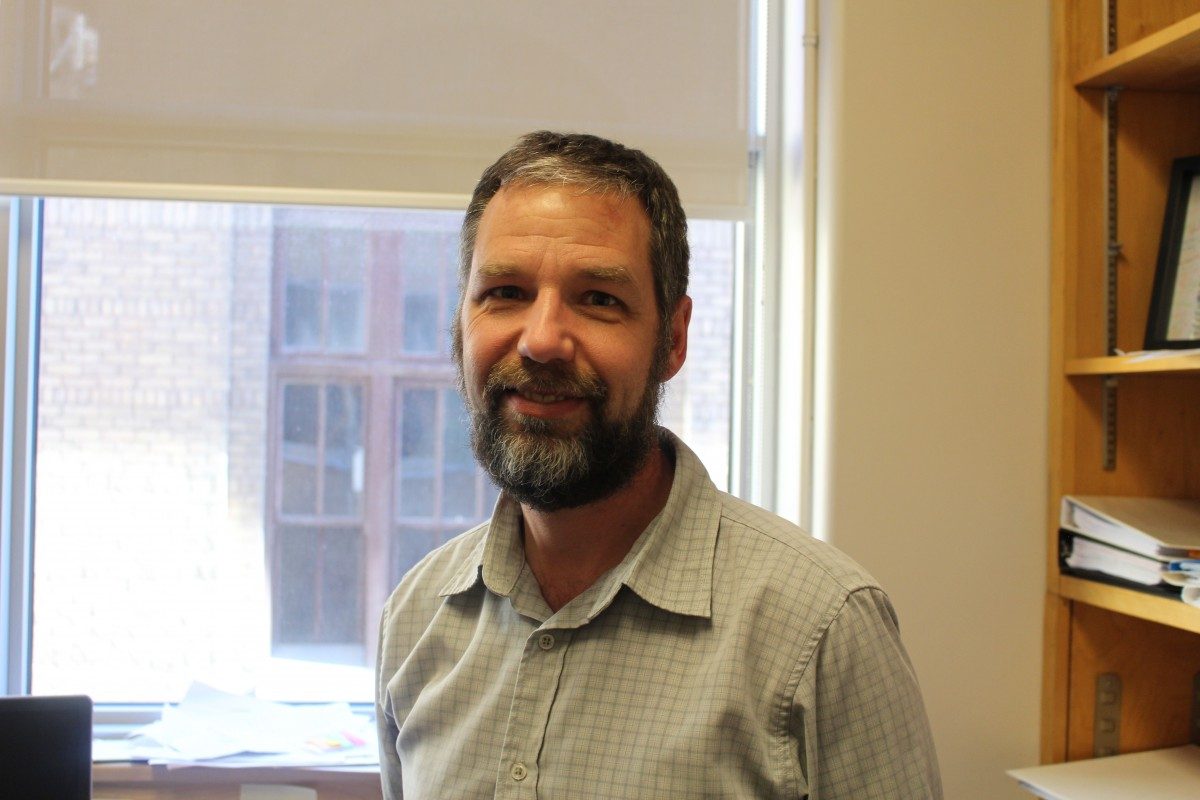
Ed Giesbrecht's work looks at how to optimize accessibility for people with mobility issues
Rolling towards accessibility
Occupational therapist Ed Giesbrecht focuses his research on mobility issues
For 10 years Dr. Ed Giesbrecht worked at the Health Sciences Centre as an occupational therapist helping people with mobility issues get back to living their lives.
That experience in clinical work was the impetus that sparked Giesbrecht’s research on mobility issues. Now, as a researcher and assistant professor in the department of occupational therapy in the College of Rehabilitation Sciences (CoRS), he is able to focus his work on enabling people to do the things that are important to them.
“My specific research is around people who use wheelchairs and other mobility aids,” he says. “My work looks at the various aspects of how to improve participation for those people, whether it’s the kind of equipment they use; accessibility in the environment; or looking at how we can provide better skills to use the equipment they already have.”
Giesbrecht is currently involved in a series of projects that provide better skills to people to be able to use their wheelchairs more effectively.
“As simple as it might look, using a wheelchair and overcoming barriers that exist can be quite challenging,” Giesbrecht says. “We have looked at different ways that we can provide training to people to improve their use of their wheelchairs. For my doctoral dissertation we developed a home training program that could be delivered using a computer tablet and people could learn skills and practice in their chairs so they’re better able to engage in their environment.”
Giesbrecht is also looking forward to working with (CoRS) research lead Dr. Jacquie Ripat on a project focusing on the unique challenges brought about by Manitoba’s snowy climate.
“We’re hoping to create an obstacle course that we can use for the evaluation of equipment and training people on how to use their wheelchair in winter and looking at the winter-specific challenges for people using mobility devices,” he says.
Working on these research projects, Giesbrecht derives satisfaction from the people he interacts with.
“When we do studies and he hear from the participants about how this has improved their lives and changed their ability to do what they want to do, that’s always an incredible reinforcement for continuing in this area of research,” he says. “Our calling is to look after each other as a community and we need to work collaboratively to ensure our communities support each other. I think that’s what health care delivery and research is all about, to ensure that we all have access and all can be part of the community.”






